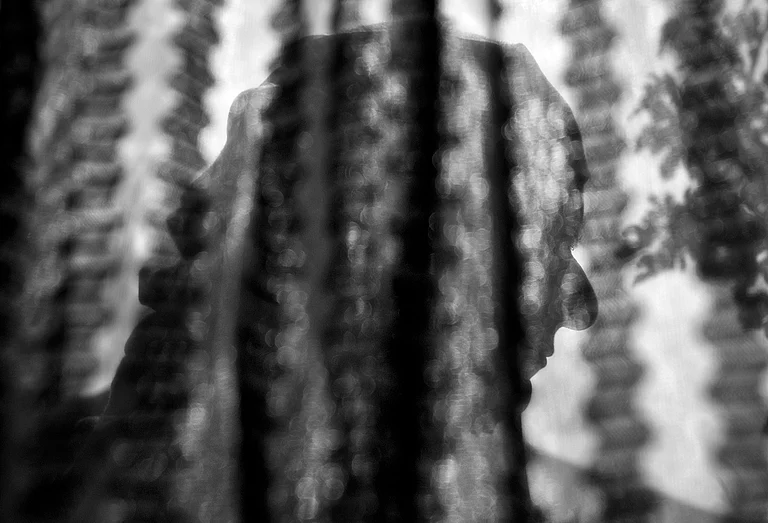‘A Tomb Tourist’
It was my wife’s birthday and we decided to visit a cemetery, as one does on such occasions. “Ah! a peep into the future,” she said with great equanimity. But this wasn’t any graveyard, it was Vincent Van Gogh’s, in Auvers-sur-Oise, north of Paris. The painter shot himself and struggled for two days at the inn nearby where he had lived and painted. His doctor could not extract the bullet, and he died at 37.
In his final moments, Vincent was comforted by his brother Theo. “I wish I could pass away like this,” said Vincent. Those were his last words. The brothers lie buried next to each other in simple graves, with the inevitable sunflowers around. ‘Ici repose Vincent Van Gogh,’ (‘Here rests…’) says the headstone. It’s ironic because rest was not his companion in life. Theo died six months later at 33, and was originally buried in Utrecht before the family decided the brothers, so close in life, should not be separated in death.
Paris made a taphophile out of me. That’s the word for the so-called ‘tomb tourist’. I had never been a regular at cemeteries—except in school when a bunch of us walked through one as a short-cut home. And now, here I was spending time with the likes of Van Gogh, and later in Giverny, with Claude Monet, and finally in Pere Lachaise with Marcel Proust, Balzac and a hundred thousand others.
J R D Tata and Jim Morrison
No taphophile worth his name can visit Paris without paying a tribute to those buried in the Pere Lachaise cemetery, named after Louis XIV’s spiritual confessor and ‘home’ to Oscar Wilde, Chopin, Pissaro and J R D Tata. Wilde’s is a flamboyant tomb with a winged sphinx carved from a 20-tonne stone by the sculptor Jacob Epstein. The figure originally had large testicles which were later vandalised and for years believed to have been in the curator’s house, being used as paperweights. In his book The Secret Life of a Cemetery, the curator Benoit Gallot confirmed this isn’t true, but the legend persists.
The Tatas’ site forms a neat rectangular area open on one side. The words Humata (good thoughts), Hukhta (good words) and Huvarashta (good deeds) are inscribed on the top.
Our companions on the trip, both professors from the UK, were keen on paying their respects at the grave of Jim Morrison, the lead vocalist of The Doors and a major influence on rock music who died at 27. I had thought his grave said: Jim Morrison, Poet. Turns out it has a Greek line translated loosely as “True to his own spirit”. It is the most visited site at the cemetery. Morrison died in 1971, and it was difficult to imagine the many gentle visitors of a certain age screaming at his concerts.
A Promise kept
From the sunflowers of Van Gogh to the lilies of Monet, it is not a long drive artistically or chronologically. Giverny is about an hour away. Monet, 50 when Van Gogh died, was the younger artist’s quintessential Impressionist. Both painted sunflowers, but once Monet moved to his house in Giverny—where he lived for 43 years, the famous water lilies and lily ponds started featuring in his work. I once gifted my wife the book, Monet’s House: An Impressionist Interior and we had promised ourselves we would visit Giverny.
The gardens are well preserved and the studio and other rooms appear magical; one expects Monet to wander in any moment. This was the bridge over so many of his paintings, that was the garden he often painted in. The light, so important to the Impressionists, seemed special. It was a pilgrimage.
The AI-ego clash
One of the joys of driving around France is that you can compare the car’s GPS with your phone’s and realise all is not well in the Artificial Intelligence world. My friend decided to ignore the car and follow the phone. The car was allowed to speak softly just so we would have the joy of being confused when contradictory instructions were given. This meant when the car told us to go right or left, it was generally ignored. And then it happened. At first, we thought we had misheard. “I am here, you know,” the car said in a hurtful voice, upset at being ignored consistently. At one point we turned right (because the phone said so), ignoring the car’s voice telling us to turn left. And then—I promise you—the car said sternly and unmistakably: “You should get your ears checked.” I was glad I wasn’t driving.
Suresh Menon is an author, most recently of 'Why Don’t You Write Something I Might Read?'
(This appeared in print as "Paris Diary")

























